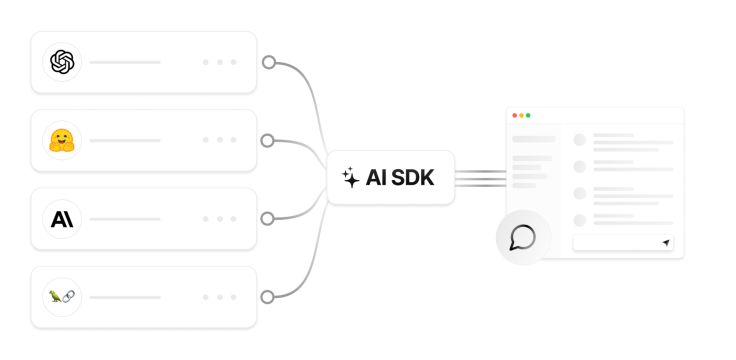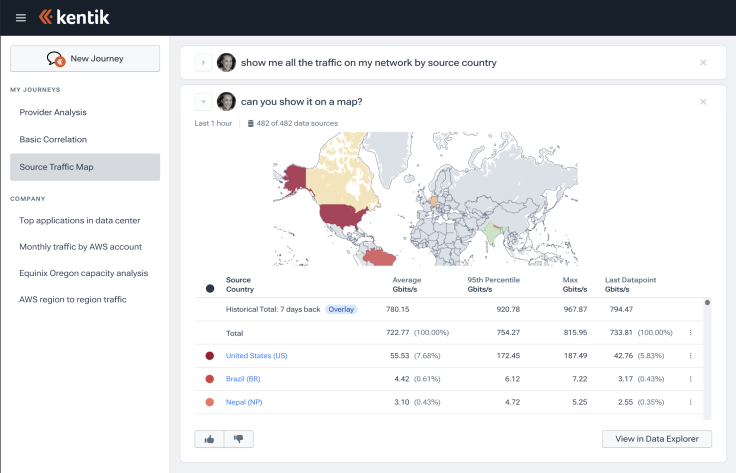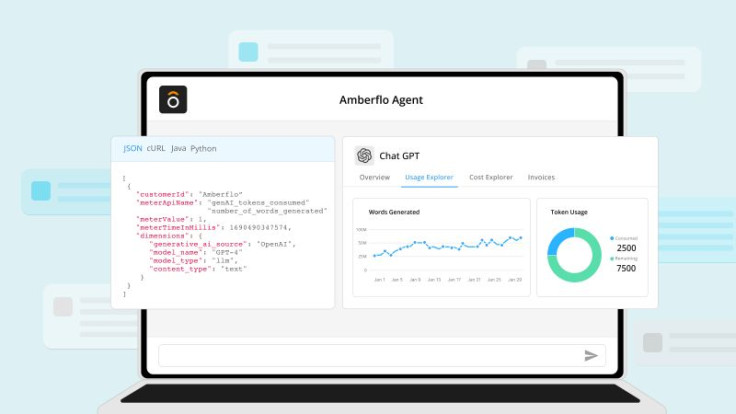
KEY POINTS
It seems like a lifetime ago when the "cloud wars" were raging and debates were happening throughout the tech media landscape as well as internally across organizations – which major cloud will be victorious? Will it be AWS? Azure? GCP?
Strange to think that was less than a decade ago. But the evidence is clear – they are all winners. As a general concept, the cloud proved a reliable and secure way to scale modern businesses – and there was enough business to go around for all of the major platforms. Not to mention all of the SaaS and service providers built on top of the cloud that has been wildly successful (think Datadog).
We are now entering the age of AI. More specifically, at least for the moment, Generative AI. It's not hard to imagine the GenAI wars that will come between OpenAI and whoever else comes to the market. But the majority of businesses built around and on top of AI will still need tremendous cloud computing power.
That is to say, the rise of AI means the continuous rise of the cloud. According to HFS Research, "The amount of data being generated and stored will continue to increase, and the demand for cloud resources will increase accordingly."
In this vein, it's important to keep an eye on the companies innovating within the cloud ecosystem. Below are 5 cloud startups to watch in 2024:
Vercel

Year launched: 2015
Total funding: $313 Million
Vercel was founded in 2015 and was initially called Zeit before rebranding to Vercel in April 2020. Vercel is a platform optimized for front-end deployment and hosting. It emphasizes speed, ease of use, and seamless collaboration and is a popular choice amongst developers looking to deploy applications quickly.
The company recently launched the Vercel AI SDK – an interoperable, streaming-enabled, edge-ready software development kit for AI apps built with React and Svelte. We have already seen a handful of apps launch with Next.js and Vercel (e.g., Scale and Jasper). The company promises to help accelerate product development by enabling users to focus on creating value with their AI applications, rather than spending time building and maintaining infrastructure.
Wing

Year launched: 2023
Total funding: $20 Million
Wing is the youngest company on our list, having exploded out of stealth with $20 Million in funding from big-name investors last year. Interesting to note that the company has yet to release a commercial product. But they have a seasoned founder in Elad Ben-Israel (CEO), who is the creator of the AWS Cloud Development Kit (CDK), and a lot of the hype around Wing comes from their new open-source programming language, Winglang.
Winglang promises to save developers from many of the frustrations of building cloud applications. Their stated mission is to unify cloud infrastructure and application code into a single programming model that works across AWS, Azure, GCP, Kubernetes, serverless, and more.
"We're abstracting away a lot of the gritty details of building applications on top of cloud infrastructure," said Elad Ben-Israel. "The cloud has evolved into an incredibly powerful computing platform, but customers still find themselves having to deal with burdensome tasks across security, networking, deployment and operations to build and manage even the simplest systems."
It will be interesting to see what Wing has in store for 2024 – we can't help but think a commercial product is imminent.
Kentik

Year launched: 2014
Total funding: $101 Million
Kentik is a Network Observability platform co-founded by Avi Freedman, Ian Applegate, Ian Pye, and Justin Biegel. The company changed its name to Kentik in 2015 and has been a steady presence in enterprise software over the past decade. While in some fundamental ways, it has remained a traditional network troubleshooting platform, we've seen the company strive to remain at the cutting edge of the cloud with updates such as dedicated Kubernetes support.
According to Kentik, "In today's digital world, being connected is everything. If packets don't move, users and customers are impacted and revenue doesn't flow. If you run your network well, you're set up for success. Run it poorly, and nothing else will matter."
The company recently launched Kentik AI, which will democratize the ability to ask complex network questions and get fast answers. For example, Kentik Query Assistant promises that users can ask a question in natural language, while the Kentik platform performs all of the complex analysis behind the scenes to provide real-time answers for rapid network troubleshooting. The company also announced AI-assisted workflows under the name "Journeys AI," and we imagine this is just the beginning for this ambitious company.
Render

Year launched: 2018
Total funding: $76 Million
Render was founded by Anurag Goel in 2018 and immediately received a lot of attention as a cloud hosting platform that's designed to enhance the experience of developers. Quickly after, in 2019, the company won TechCrunch Startup Battlefield, and they have been skyrocketing towards the clouds ever since.
Developers leverage render to spin up everything from web services to static websites and deploy in seconds. Their platform aims to offer flexible, cheaper, and simpler infrastructure. And like Vercel and Wing, Render believes that managing infrastructure shouldn't occupy so much developer mindshare.
A quick visit to the website shows impressive numbers, with over 750,000 developers using the Render platform (including Fortune 500 companies). Having just raised $50 million in Series B funding in June of last year from major VC Bessemer Venture Partners, it's hard to imagine the company outpaces the trajectory it's maintained over the past few years. But I wouldn't bet against it, either.
Amberflo

Year launched: 2020
Total funding: $20 Million
Amberflo was founded in 2020 by ex-AWS Puneet Gupta with a strong hypothesis: the world of software will move away from subscription pricing and towards usage-based pricing. On paper, Gupta's pitch seems straightforward: subscription pricing is too often arbitrary and inflexible, while cloud services are highly dynamic and elastic.
The problem with this hypothesis is that the complexity of the cloud makes usage metering a very difficult challenge for most companies. Unlike metering the electricity usage in your home, for example, which is relatively simple for the utility company. Therefore, as long as subscription models are simpler and easier to implement, it's hard to imagine they will go away anytime soon.
But a point in Gupta's favor is the rapid ascent of Generative AI. There isn't a software company out there discussing how to leverage GenAI to potentially improve their customers' experience. Unfortunately, most of these companies may lose money as they pay companies like OpenAI for tokens. The solution to this problem may very well be instrumenting usage-based metering with a platform like Amberflo, which can monitor how much companies are spending on AI, as well as how much their own customers are consuming, in order to up-charge fairly for a reliable and predictable profit margin.
2024 may very well be the year of GenAI. But that also means continued growth for the cloud and cloud-based applications. Keep an eye on these companies in 2024.







